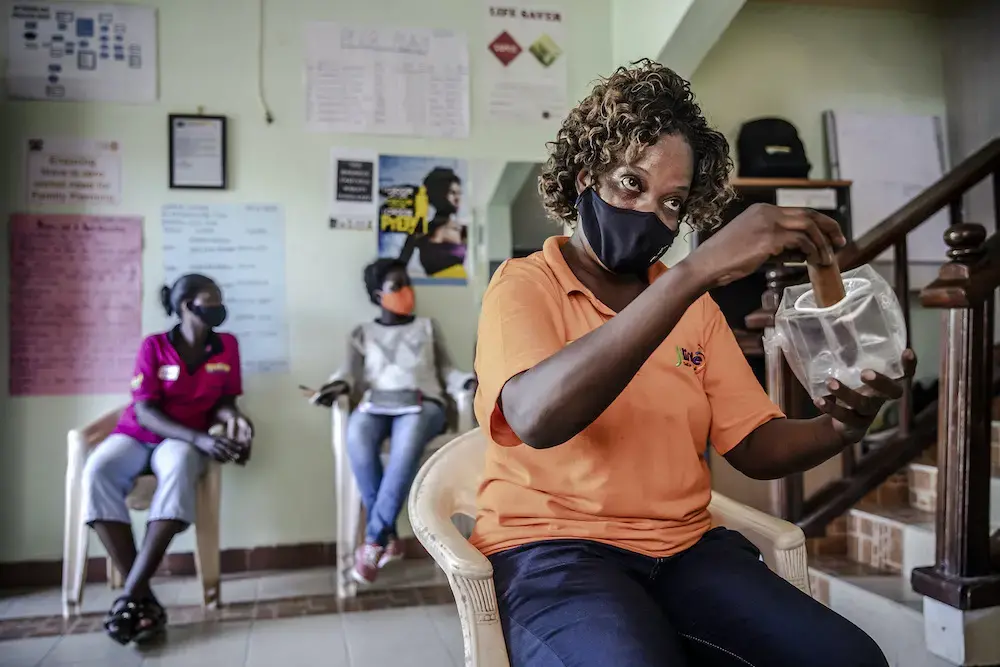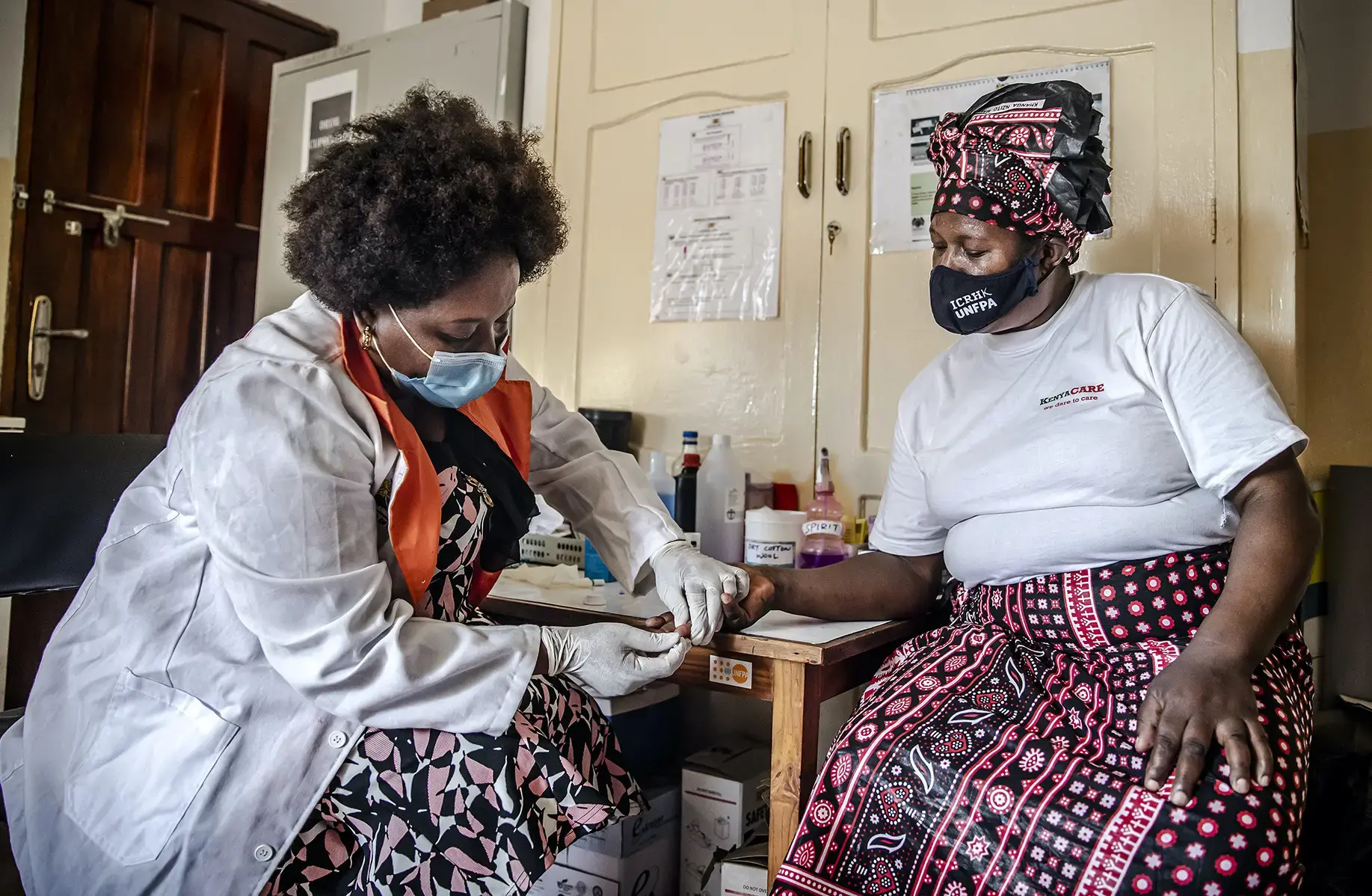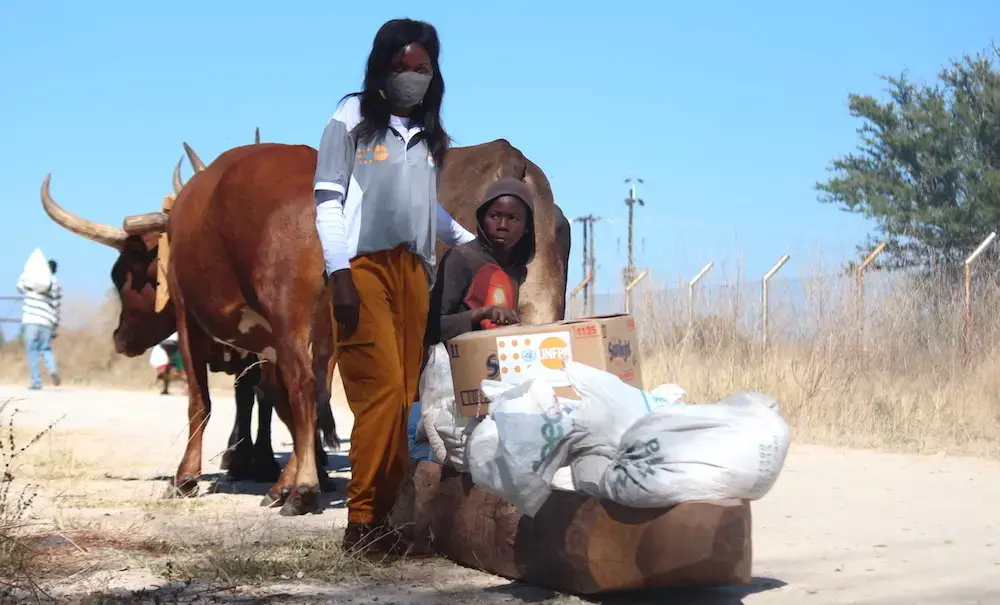KIGALI, Rwanda, International Conference on AIDS and STIs in Africa—UNFPA committed to continue strengthening partnerships as it seeks solutions to end AIDS in Africa, said Mabingue Ngom, UNFPA Regional Director for East and West Africa. “We believe that it’s only through genuine partnership and effective collaboration that we can together end the HIV epidemic,” he said.
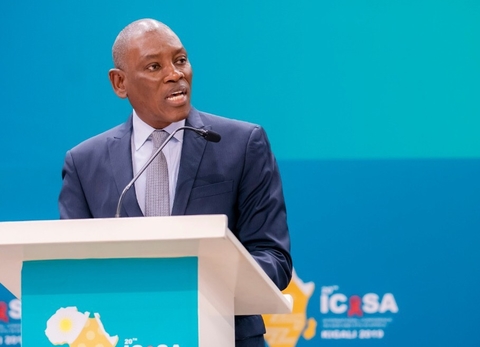
and communities to interact, reflect, engage and propose solutions
to end the scourge of AIDS in our continent, said Mabingue Ngom,
UNFPA Regional Director for East and West Africa.
© Rwanda Biomedical Centre/Andrew Rugema
He was speaking at the closing of the 2019 ICASA, which ran from 2-7 December and was dubbed a resounding success. Along the theme of "AIDS-free Africa – Innovation, Community, and Political Leadership”, the event covered a wide range of issues related to HIV, infectious diseases, human rights and treatment.
“The ICASA platform provides a unique opportunity for leaders, scientists, activists and communities to interact, reflect, engage and propose solutions to end the scourge of AIDS in our continent. We achieved this,” he said.
Rwanda’s Minister of Health, Dr. Diane Gashumba, called for words to be transformed into concrete action following the event: “My hope is that we can take the ideas and discussions made here this week and turn them into action. We have a mission,” she said.
My hope is that we can take the ideas and discussions made here this week and turn them into action. We have a mission.
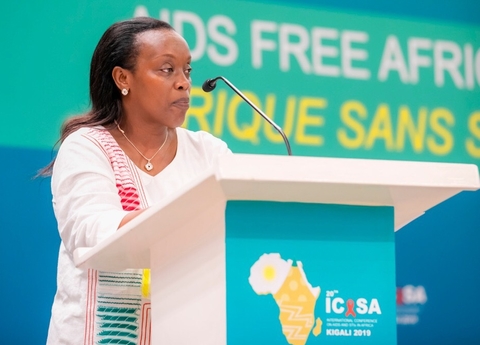
concrete action. © Rwanda Biomedical Centre/Andrew Rugema
“We have had the opportunity to foster rich conversations, identify challenges and learn from the sessions that have taken place. At the beginning of this conference, we identified three main pillars: innovation, community and political leadership. We must continue building on this leadership, with the support of our partners, to accelerate progress and attain results,” she added.
Women remain disproportionately affected by the burden of HIV and AIDS. Girls remain one of the most vulnerable populations affected by the disease, and they are twice as likely to be living with HIV as young men. More effort is needed to accelerate prevention methods, access to contraception and innovation in cervical cancer testing and treatment. Most importantly, women’s rights and wellbeing must continue to be advocated for.
Fight for solutions to HIV and AIDS
Implementation of the outcomes of the discussions, and working together, were at the centre of the recommendations stemming from this year’s ICASA.
The history of the fight against HIV shows that political will is crucial.
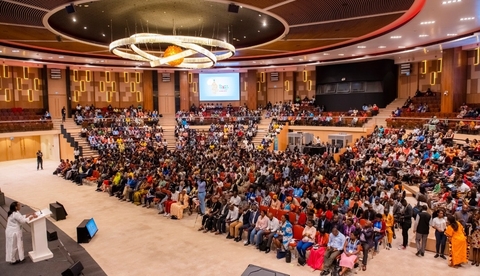
only continue these important conversations, but also fight for
solutions." - Dr. Gashumba.
© Rwanda Biomedical Centre/Andrew Rugema
“The history of the fight against HIV shows that political will is crucial. It is a shared responsibility because no one can achieve it alone. We are not looking for competition but complementarity. To fight against HIV and AIDS we need to come together,” said Dr. Jeanne Gapiya Niyonzima, a Burundian activist for human rights and the rights of people infected with and affected by HIV and AIDS.
In summing up, Dr. Gashumba expressed optimism about efforts to end HIV: “We must address the challenges we have identified here and not only continue these important conversations, but also fight for solutions. Let us not forget that we are stronger together. I look forward to the next ICASA. It is my belief that we will have huge successes to celebrate.”
The event brought together 8,200 delegates from 152 countries. It was officiated by Rwanda’s President Paul Kagame, who was joined by Mozambican President Filipe Nyusi and Tedros Adhanom Ghebreyesus, Director-General of the World Health Organization.
ICASA 2020 is to be held in Kampala, Uganda.
- Marie France Uwase Ntaganira


